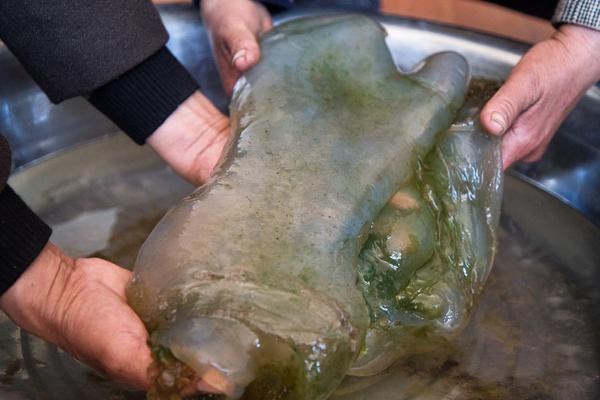Slack and its scores of desktop app users just dodged a major bullet.
The communications tool relied upon by journalists, tech workers, and D&D fans alike disclosed on Friday a "critical" vulnerability — now fixed — that would have let hackers run wild on users' computers. Slack's internal security team didn't even find the bug; rather, it was a third-party security researched who reported it, through the bug bounty platform HackerOne in January.
Notably, the exploit allowed for something known as "remote code execution," which is just as bad as it sounds. Before Slack fixed it, an attacker using the exploit could have done some pretty wild stuff, such as gaining "access to private files, private keys, passwords, secrets, internal network access etc.," and "access to private conversations, files etc. within Slack."
What's more, according to the disclosure, maliciously inclined hackers could have made their attack "wormable." In other words, if one person in your team got infected, their account would automatically re-share that dangerous payload to all their colleagues.
It's worth emphasizing that the security researcher who discovered this vulnerability — a process that takes untold hours of work and is a literal job — decided to do what many would consider the right thing and report it to Slack via HackerOne. For the security researcher, whose HackerOne handle is oskars,this resulted in a bug bounty payment of $1,750.
Of course, had that person wanted, they could have likely gotten much, much more money by selling it to a third-party exploit broker. Companies like Zerodium, which offer millions of dollars for zero-day exploits, in turn sell those exploits to governments.
Members of the computer security community were quick to point out the relatively paltry payout for such an important bug.
Tweet may have been deleted
Tweet may have been deleted
Tweet may have been deleted
We reached out to Slack in an effort to determine how it decides the size of its bug bounty payments, and whether or not it had a response to the criticism levied by members of the security community. In response, a company spokesperson replied that the amount Slack pays for bug bounties is not fixed in stone.
"Our bug bounty program is critical to keeping Slack safe," the spokesperson wrote in part. "We deeply value the contributions of the security and developer communities, and we will continue to review our payout scale to ensure that we are recognizing their work and creating value for our customers."
The spokesperson also noted that the company "implemented an initial fix by February 20."
SEE ALSO: 7 Slack privacy settings you should enable now
Interestingly, Slack does appear to have upped the amount it's willing to pay bug bounty researchers for coordinated disclosure. A look at its HackerOne profile page shows that, as of the time of this writing, reporting a remote code execution vulnerability would merit "$5000 and up."
Too late for oskars, but perhaps that will encourage the next security researcher who discovers a critical vulnerability in Slack to report it to the good guys. We should hope so, for the sake of Slack users everywhere.
UPDATE: Aug. 29, 2020, 1:49 p.m. PDT: This story has been updated to include Slack's statement.
TopicsCybersecurity
(责任编辑:探索)
 Satisfy your Olympics withdrawals with Nike's latest app
Satisfy your Olympics withdrawals with Nike's latest app These are Elon Musk's favorite Grimes songs
These are Elon Musk's favorite Grimes songs Turtle sex videos, ranked
Turtle sex videos, ranked Tesla Model X sets record by towing Boeing Dreamliner down runway
Tesla Model X sets record by towing Boeing Dreamliner down runway How Hyperloop One went off the rails
How Hyperloop One went off the rails With the Pokémon Go fever still shaking half the world, there's bound to be plenty of trainer
...[详细]
With the Pokémon Go fever still shaking half the world, there's bound to be plenty of trainer
...[详细] If you're one of the early risers in the U.S. who set their alarm for the royal wedding, count Ameri
...[详细]
If you're one of the early risers in the U.S. who set their alarm for the royal wedding, count Ameri
...[详细]Turns out this high school's mystery pooper is a different district's superintendent
 Good news everyone: This high school's mystery pooper was caught, and in a shocking twist, it was th
...[详细]
Good news everyone: This high school's mystery pooper was caught, and in a shocking twist, it was th
...[详细]Roseanne Barr says she 'begged' ABC not to cancel her show
 She's tweeting again.Roseanne Barr has dominated the news cycle this week after tweeting a racist ti
...[详细]
She's tweeting again.Roseanne Barr has dominated the news cycle this week after tweeting a racist ti
...[详细]This coloring book is here for all your relationship goals
 LONDON -- We are living through the golden age of celebrity relationships. Gone are the days of tort
...[详细]
LONDON -- We are living through the golden age of celebrity relationships. Gone are the days of tort
...[详细]Chrissy Teigen teases John Legend for ditching their newborn — and gets real about postpartum life
 Chrissy Teigen and John Legend just welcomed a baby boy into their family, and while it's only been
...[详细]
Chrissy Teigen and John Legend just welcomed a baby boy into their family, and while it's only been
...[详细]Game critic John 'TotalBiscuit' Bain dies afte battle with cancer
 Game critic John Bain, known to millions by his moniker TotalBiscuit, died Thursday after a battle a
...[详细]
Game critic John Bain, known to millions by his moniker TotalBiscuit, died Thursday after a battle a
...[详细]Dawkins, an escaped macaque, runs wild at San Antonio airport
 Anarchy. Rebellion. High drama. It was all happening at San Antonio International Airport, where a c
...[详细]
Anarchy. Rebellion. High drama. It was all happening at San Antonio International Airport, where a c
...[详细]Did our grandparents have the best beauty advice?
 Do our grandparents really know what's best?They're older and wiser, and they have no shortage of ad
...[详细]
Do our grandparents really know what's best?They're older and wiser, and they have no shortage of ad
...[详细]A kid made a resume for Groot and it's highly accurate
 Groot's dialogue may be limited in vocabulary, but it conveys such incredible feeling.SEE ALSO:You m
...[详细]
Groot's dialogue may be limited in vocabulary, but it conveys such incredible feeling.SEE ALSO:You m
...[详细]Make money or go to Stanford? Katie Ledecky is left with an unfair choice.

London unveils contactless payment system for buskers
